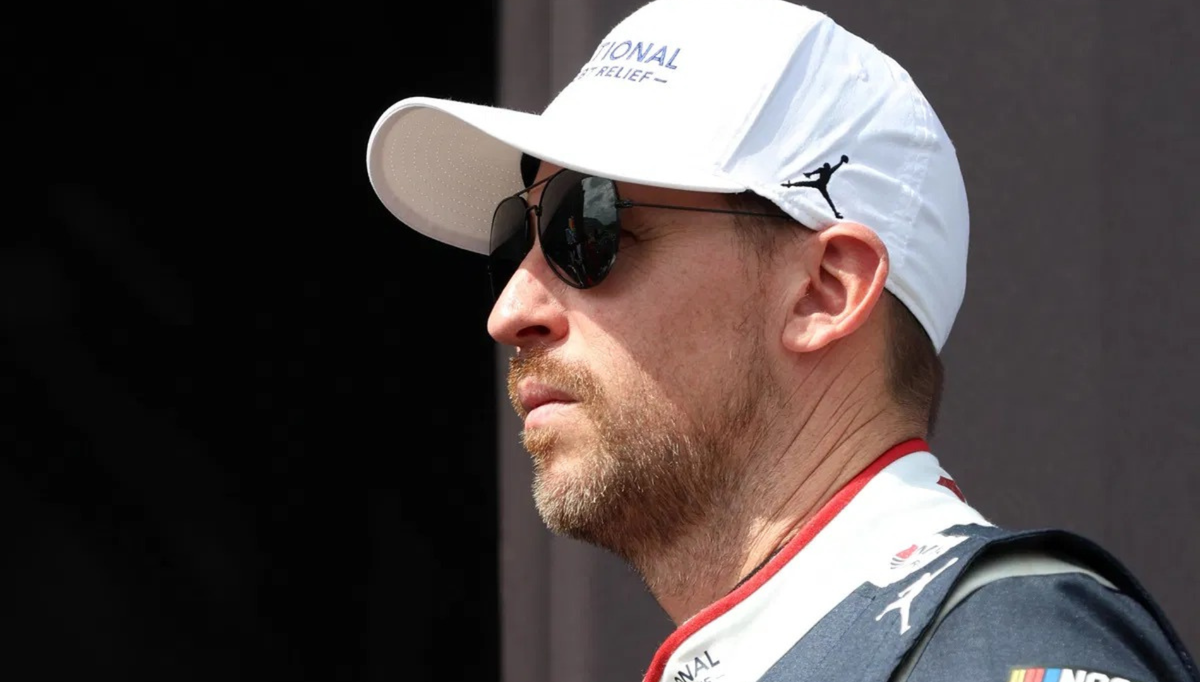

Racing fans are no strangers to debates around NASCAR’s playoff format, but the tension reached a new pitch this week across both airwaves and social feeds. The past week, the discussion shifted into new territory when radio analysts circled Denny Hamlin’s name during a heated debate on SiriusXM. As anonymous speculation gave way to direct references on-air and across social media, Hamlin suddenly became the focal point not just for his opinions about points systems, but for the legitimacy of his voice within the sport. With Hamlin’s name quickly thrust into the crosshairs, social media lit up yet again with familiar arguments about driver credibility and championship “worthiness.”
Watch What’s Trending Now!
Hamlin has spent years immersed in these debates, both as a driver and as a media personality. For him, this moment was less about playoff math and more about a deeper issue: a longstanding tendency to question the credibility of even NASCAR’s most established voices. As the rumors swirled, so did the criticism, positioning Hamlin at the intersection of an all-too-familiar NASCAR conversation: who gets to shape the discourse and why.
Denny digs the credentials, critique, and the limits of NASCAR media debate
When SiriusXM’s Danielle Trotta and Larry McReynolds speculated on-air that a driver was pushing for a return to the old, pre-2004 Winston Cup points system, insinuations quickly began pointing to Denny Hamlin. While Trotta initially referenced Mark Martin in later social media posts, Hamlin astutely noted that McReynolds, by suggesting the driver in question was “active and on the council,” had effectively shifted the target toward him. Hamlin, however, publicly rejected having ever lobbied for a return to the full-season points format, saying, “I have not. That is correct.”
The dispute grew more personal with McReynolds’ assertion that only a driver without a Cup championship would want to revert to the old format. Hamlin took direct issue with this approach on his Actions Detrimental podcast, stating, “I’ve never seen another sport that continues to question what their star athletes say than this one here… that’s what the people on that channel typically do. They continually question the people that actually have the credentials to give an opinion.”
Hamlin’s frustration is rooted in a pattern he sees all too often in NASCAR coverage: legitimate critique dismissed based on an athlete’s resume rather than the substance of their argument. He challenged the logic, asking, “He doesn’t have a championship, so he’s not allowed to have the opinion is what it came from. Am I missing something? Does Larry have one?” In Hamlin’s view, the repeated undermining of driver credibility by media analysts isn’t just personally irksome; it erodes the quality and integrity of the entire debate about NASCAR’s future.
Denny Hamlin called out this logic for its double standard. When credentials are weaponized, he said, the debate turns personal rather than productive. He continued, “They continually question the people that actually have the credentials to give an opinion. That’s my problem with that channel.” This saga underscores deeper structural tensions in the sport. While Hamlin has proposed nuanced changes such as introducing a championship “round” instead of the current single-race finale and boosting reward for regular season performance, media narratives habitually latch onto the personalities behind these ideas, often reducing complex arguments to superficial critiques.
Hamlin concluded that this dismissive approach does more harm than good, especially when the goal should be substantive debate: “It’s just a way for them to stick their nose in the air and act smarter than they actually are.” These remarks offered a rare window into how top-tier drivers interpret their relationship with NASCAR’s media channels, frustrated not with criticism, but with ad hominem framing that calls into question their legitimacy based not on the content of their ideas, but on career checklists.
For Hamlin, the implication is clear: if insight from an active, multi-win driver is inferred to be invalid unless it comes with a championship trophy, the discourse around the sport is fundamentally broken.
Denny Hamlin’s team’s breakthrough playoff mission
Against the backdrop of public debate and media scrutiny, Denny Hamlin’s role as co-owner of 23XI Racing is also entering its most consequential chapter yet. With 23XI securing its biggest playoff breakthrough to date, the possibility of placing multiple cars into the postseason, Hamlin has turned his sights toward new milestones for the team.
Denny Hamlin recently revealed that simply reaching the playoffs is no longer the ceiling: 23XI’s next “mission” is to achieve sustained success and compete for wins deep into the postseason. This pivotal moment for the organization is about setting higher standards and showing that the team can genuinely go toe-to-toe with NASCAR’s traditional powerhouses. The significance of having multiple cars in the playoffs is a testament to the growth and competitive credibility of the team, a development Hamlin emphasized as a point of pride but also as a challenge to raise the bar even further.
“It’s the first time for our team to have two cars… that are likely to get in. Um, that’s a milestone. It’s a milestone for us.” Denny admitted. This recognition is particularly significant for a team that initially launched with just a single full-time entry for Bubba Wallace and has added a second car and competitive depth over just a few seasons. It’s not merely business as usual; it’s a sign of growth, validation of effort, and an upward trajectory within a fiercely competitive Cup Series field.
With a breakthrough now behind them, Hamlin and 23XI Racing are focused on leveraging this momentum. The team’s narrative has evolved: no longer just up-and-comers, they’re now setting concrete objectives and aiming to solidify themselves as perennial contenders. As the playoffs approach, all eyes will be on whether Hamlin and his team can translate this breakthrough into a championship run and reshape their place in the sport’s competitive hierarchy.








